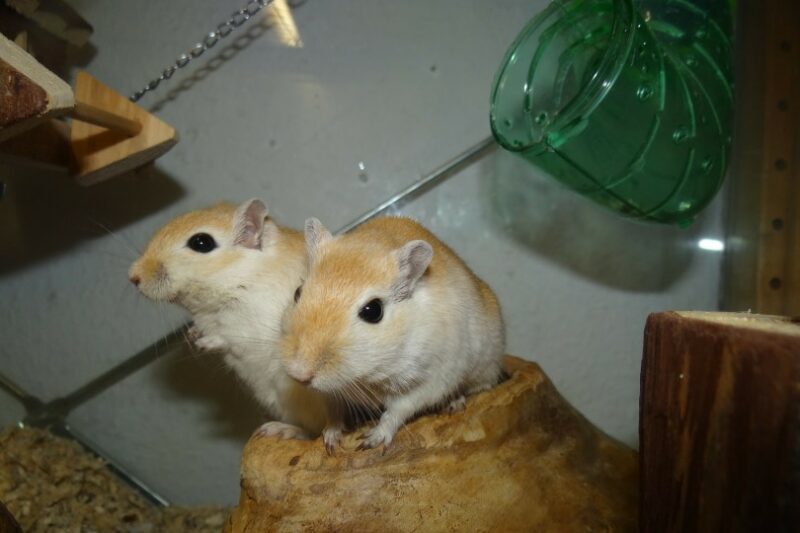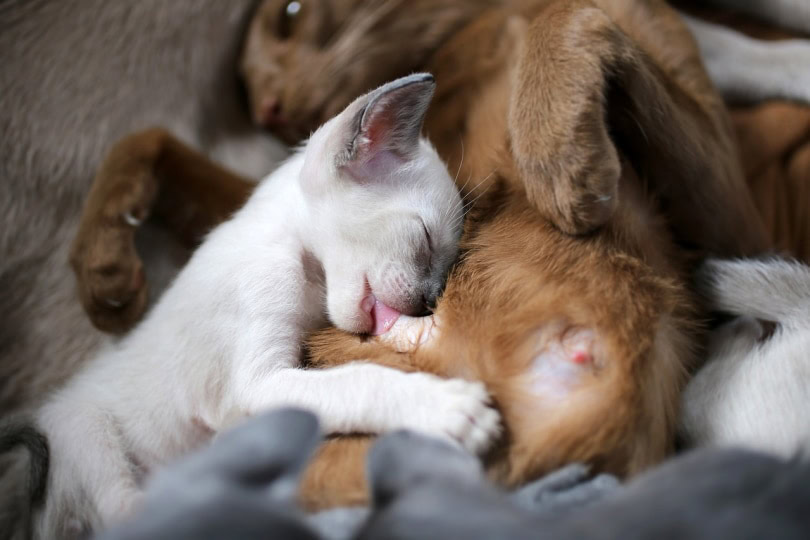VET APPROVED

The information is current and up-to-date in accordance with the latest veterinarian research.
Learn more »Click Below to Skip Ahead
Mice are prolific breeders. Females can potentially start breeding from the age of 4 weeks and have a litter every 4 weeks, with each litter consisting of up to 14 pups. That means that, from a single female, you could have 50 or more pups in a single year.
If you’re looking to avoid unwanted litters, you should separate young mice before they reach 4 weeks. If you are looking to intentionally breed mice, it is generally recommended that you wait until they are at least 12 weeks of age. Breeding mice when they are too young can lead to complications during pregnancy and birth.
However, you should carefully consider whether breeding mice is the right choice. You can quickly become overwhelmed by sheer numbers and mouse breeding is not a profitable venture for most people.

About Mice
There are hundreds of species of mice, including those that live in or near houses, as well as those that prefer wild habitats. However, most mice live near humans. Mice are small rodents, ranging in size from the tiny 3-inch African Pygmy Mouse to the giant 6-inch Petter’s Big-Footed Mouse.
Mice are omnivores and opportunistic eaters, which means that they will eat whatever is available to them. In the wild, they will usually eat seeds and plants, but will also eat insects and other sources of meat, where available.
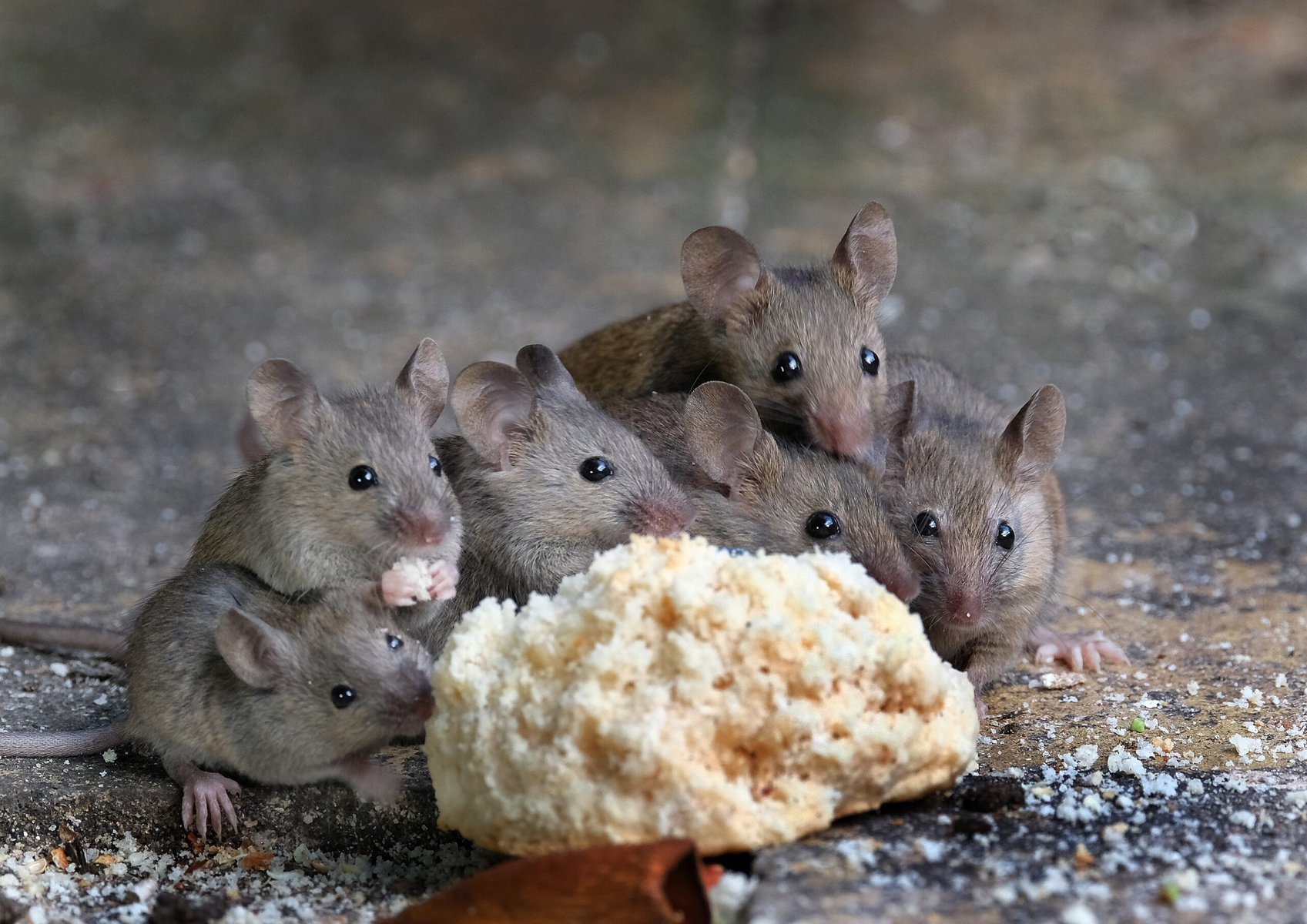
Mice as Pets
Mice are small. They’re also fast and can nip if they are handled roughly or get scared. As nocturnal animals, they also tend to be most active at nighttime. As such, they don’t make the best pets for small children. But, with regular handling, they can make good pets for responsible children and adults. They will also adapt to your routine, so they may spend more time awake during the early evening.
Mice Breeding
Because it is very difficult to sex baby mice, another reason that they may not make the best pet for everybody is the possibility of unwanted litters.
Mice are prolific breeders. Females can start breeding when they are as young as 4 weeks old, although this isn’t advised. Experts suggest that owners wait until females are at least 12 weeks old before mating to reduce the likelihood of illness during pregnancy and difficult births. Males can breed from as young as 4 weeks, in some cases, and there is no reason to wait until they get older.
Most owners keep breeding mice in pairs, with one male and one female, or as a trio, with one male and two females. Although male mice do not usually attack or eat their young and are actually thought to be good parents, keeping the young warm when the mother is unable to, they should be removed before the female gives birth. This is because he will try to impregnate the female quickly after she gives birth. It can be detrimental to a doe’s health to get pregnant too soon after giving birth.
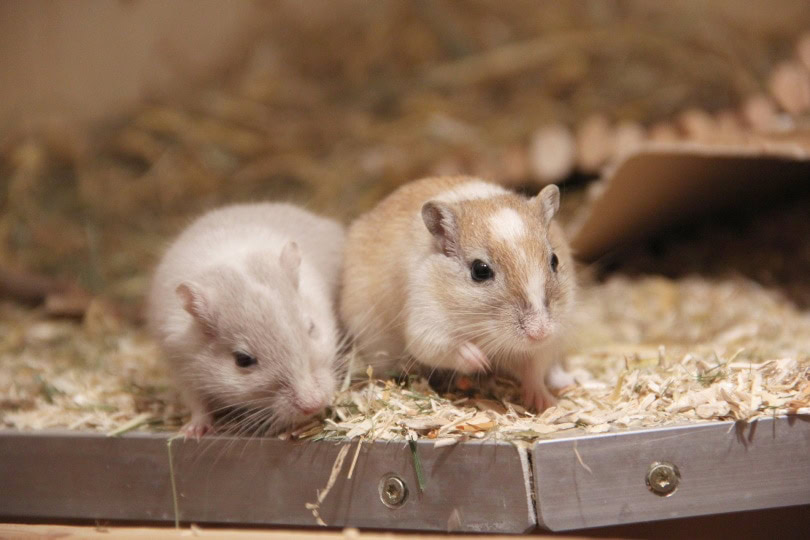
How to Tell If a Mouse Is Pregnant
A mouse is usually pregnant for around 4 weeks. A plug of hardened semen can be seen at the opening of the doe’s vulva for a day after mating. After a day or so, the plug will be expelled and may be found in the cage.
At around the 2-week stage, the doe’s abdomen is likely to be swollen and her nipples enlarged. These are the most obvious signs of pregnancy in mice.

Top 4 Fun Facts About Mice
1. Mouse Urine Is Fluorescent
One way to determine whether you have a mouse infestation in your home is to use a blacklight. This is because mouse urine contains amino acids that are fluorescent and will glow when under a blacklight.
2. They Prefer Seeds to Cheese
Although cartoons and comics portray mice as being cheese lovers, they aren’t typically attracted to the dairy product. Their love for seeds means that they may be more attracted to plant-based milk alternatives.
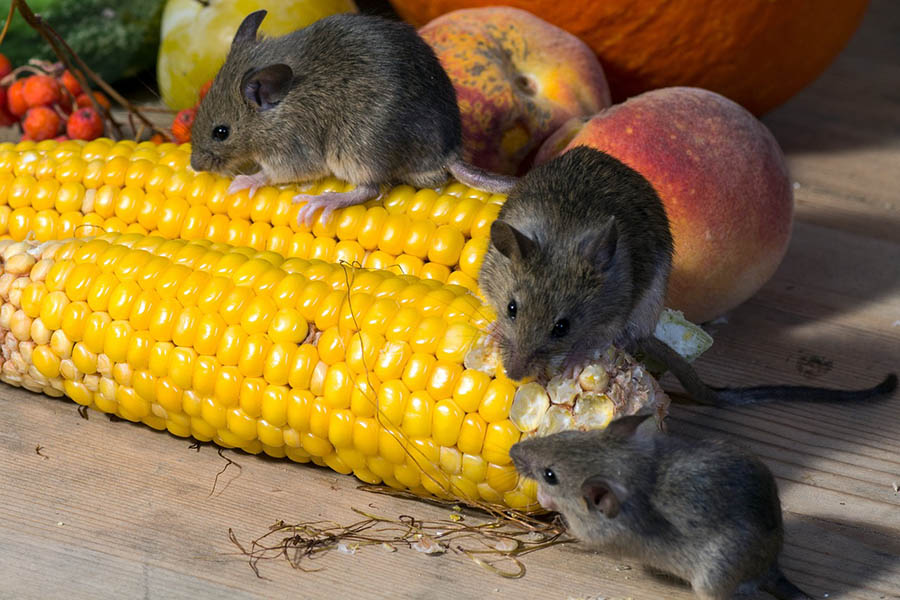
3. They Are Very Agile
As well as being fleet-footed, mice can jump, crawl, and climb. Their agility makes mice a lot of fun to watch in their cages and it can also make them incredibly difficult to catch if they get out of their enclosure.
4. Mice Can Fit Through Very Small Gaps
The largest part of a mouse is its skull, and wherever this fits, so too will the mouse.
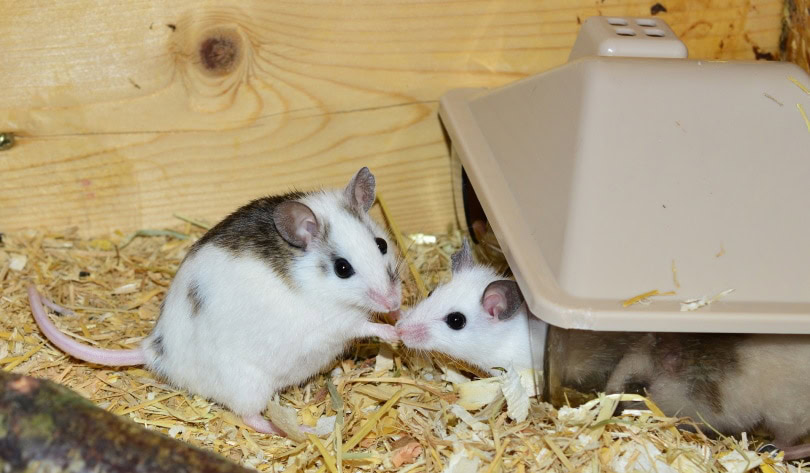

Summary
Mice can make good pets for older children and adults, but their size, nervousness, and their propensity to bite when scared mean they may not be ideal pets for young children. They are also very prolific breeders, so any owner needs to be sure to separate males and females as soon as possible to avoid potentially having several dozen pups to house.
Females can reproduce from the age of about 4 weeks, although it is recommended that you wait until the doe is at least 12 weeks, to avoid difficult pregnancies and births, if you are looking to breed intentionally.
- https://www.pets4homes.co.uk/pet-advice/breeding-mice.html
- https://www.preventivepesthouston.com/blog/2018/may/how-fast-do-mice-multiply-in-your-home-/
- https://www.inaturalist.org/taxa/74536-Macrotarsomys-petteri
- https://www.rspca.org.uk/adviceandwelfare/pets/rodents/mice/diet
- https://www.pdsa.org.uk/pet-help-and-advice/looking-after-your-pet/small-pets/is-a-mouse-the-right-pet-for-you
- http://www.hiiret.fi/eng/breeding/?pg=2&sub=6
- https://www.earthkind.com/blog/5-facts-you-didnt-know-about-mice/
- https://animals.mom.com/mice-communicate-3700.html
- https://thenationalmouseclub.co.uk/breeding/
- https://www.msdvetmanual.com/all-other-pets/mice/breeding-and-reproduction-of-mice
- https://www.livescience.com/28028-mice.html
Featured Image Credit: Guillaume1966, Pixabay
